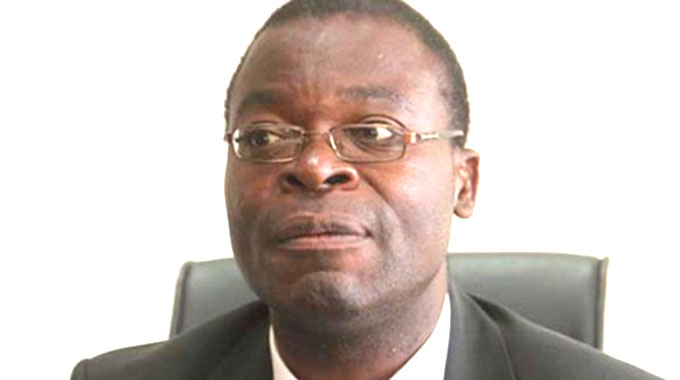From academic papers to research that works

The Centre for Education, Innovation, Research and Development Bill, which seeks to create a technology hub to harness and coordinate research and innovation in universities and colleges to drive Zimbabwe’s modernisation and industrialisation, was tabled before Parliament recently. In this report, our Agric, Environment & Innovations Editor Sifelani Tsiko (ST) speaks to Minister of Higher and Tertiary Education, Innovation, Science and Technology Development Professor Amon Murwira (AM) to get some useful insights into the new Bill.
ST: What is the main motivation behind the Centre for Education, Innovation, Research and Development (CEIRD) Bill?
AM: Zimbabwe is developing a formula for industrialisation and modernisation using its education. Thus, the motivation behind the Centre for Education, Innovation, Research and Development (CEIRD) Bill is the need to industrialise and modernise Zimbabwe through Education Innovation, Research and Development that is anchored on a well configured and reorganised applied research framework for the production of quality goods and services. All industries we see today were grown through some kind of well-configured education.
This is the intention of this Bill. We want our education system to come up with innovations that drive industrialisation that can help to meet and satisfy the needs of our own people in terms of food, water, shelter and a whole range of other needs.
ST: Can you tell us briefly what will be the mission of this centre once it is approved by Parliament?
AM: CEIRD shall act as a conduit of industrial spin-offs, through the addition of value to our heritage through innovation research and development.
Based on the application of science and technology and innovation on our heritage, CEIRD shall cause value chain development by turning our education, innovation research and development into a pillar for Zimbabwe’s industrialisation and modernisation.
ST: In what way will the mandate of CEIRD be different from the Research Council of Zimbabwe? Will its creation not duplicate the work of the RCZ and waste the country’s resources?
AM: CEIRD is completely different, but a complementary entity to RCZ in that CEIRD is operational and is subject to ethics and research control imposed by the Research Council of Zimbabwe (RCZ). It is important to note that RCZ is a premier research ethics and control body, while CEIRD provides an active research organisational mechanism or framework. CEIRD is composed of various specialised institutes working on various programmes directed by the Government priority programmes.
The goal is to deliberately cause the formation of new Intellectual Property (IP) based industries and to create a national critical ecosystem of innovators within national ethical values monitored by RCZ.
ST: Can you give examples of other African countries that have similar centres. In what way, in brief, are these centres contributing to the modernisation and industrialisation of their countries?
AM: I am currently not aware of any country on the continent with such a legal framework. We believe Zimbabwe is leading in terms of this framework. The framework is born from our own Zimbabwe situational awareness effort as championed by His Excellency, President Mnangagwa. In fact, this is part of His Excellency’s legislative agenda.
ST: Critics will argue that the creation of the Centre is unnecessary given the fact that Zimbabwe already has existing institutions such as SIRDC, RCZ and several universities and research institutions that could carry out the mandate spelt out in the Bill. What is your comment on this?
AM: You will agree with me that the current research landscape in Zimbabwe does not have an institution that provides a framework for cooperative research. Our institutions have been operating in silos because of the absence of this framework, thus denying the nation the opportunity to develop industrially based on the intellectual property (IP) of its people. CEIRD provides the mechanism to cause cooperative research arrangements with the ultimate aim of producing spin-off industries that are IP based. We are moving away from research that produces papers to research that produces goods and services. The centre occupies the upper level of all operational coordinating mechanisms and operates above all existing research institutes in Zimbabwe.
This entails that, researchers are seconded from universities, colleges, research institutes, both public and private, to work together as a team to accomplish a specific research tasks that cause spin-off industries.
ST: Government has many other pressing commitments when it comes to resource allocations. In what way are you going to mobilise resources for the financing of this Centre?
AM: We believe there is no pressing commitment that is greater than the need to fund a centre that provides the prime method for economic development and wealth creation as represented by CEIRD. Thus, funding for the Centre of Education, Innovation, Research and Development shall consist of base funding in the form of money appropriated by an Act of Parliament for the purposes of the Centre, any money allocated by treasury for that purpose, any other money to which the Fund may be lawfully entitled from public projects through its own research and development and innovations.
The Centre, like national universities and state research institutions, shall operate in the public domain and therefore not be subject to taxation under the laws of Zimbabwe.
ST: Briefly tell us how the centre will benefit local researchers and innovators?
AM: The major goal of this CEIRD is to spin off Intellectual Property (IP) based industries. Patenting guarantees income to our researchers and innovators as the innovations go through toll manufacturing.
This is a method for developing our motherland. This is our anti-dote against poverty and de-industrialisation.
ST: Innovations also come from individuals who are not educated in any way. How is the Centre going to support such individuals and ensure their works are recognised and promoted?
AM: Remember CEIRD is a collaborative research arrangement that does not leave anyone behind irrespective of the level of education. All people are educated in one way or another. CEIRD shall work with innovation hubs to ensure that successful innovations from people of all walks life are recognized before for purposes of causing a manufacturing industry in our industrial parks.
ST: What are your hopes for the Centre for Education, Innovation, Research and Development Bill? Are you confident it will sail through Parliament?
AM: We are humbled by the support we are getting from Parliament. In fact, Parliament has been encouraging and urging us to have this kind of legislation that is meant to translate our knowledge into industries by focusing on the production of goods and services.
We are simply saying, we enjoy support for creating the Centre for Education, Innovation, Research and Development because it is addressing a national strategic intent. The Centre for Education, Innovation Research, and Development, through the strength of its collaborative research framework, new products from innovation, spin off industries based on the devolution principle, shall be at the core of ensuring that Zimbabwe is industrialised and modernised.








Comments